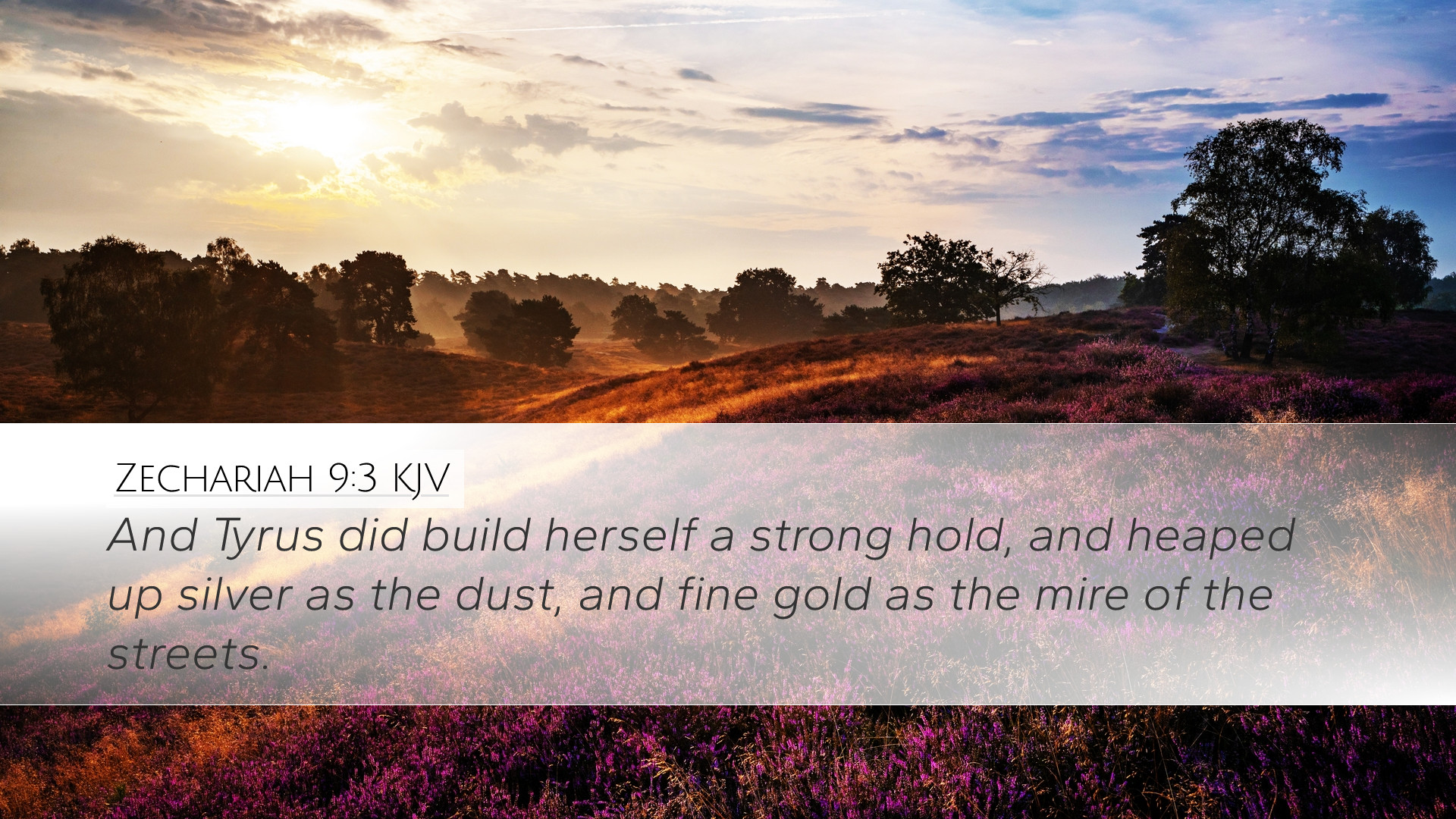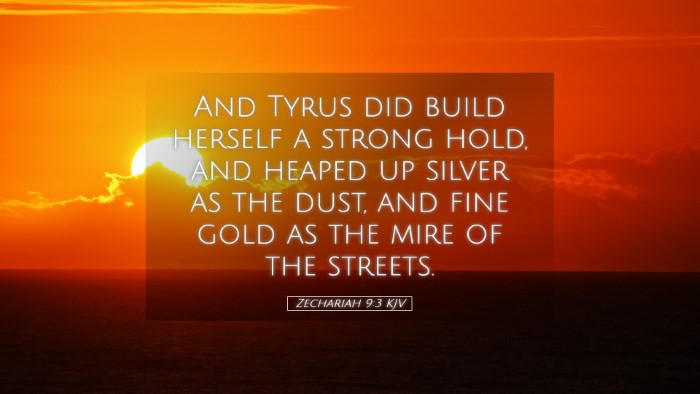Old Testament
Genesis Exodus Leviticus Numbers Deuteronomy Joshua Judges Ruth 1 Samuel 2 Samuel 1 Kings 2 Kings 1 Chronicles 2 Chronicles Ezra Nehemiah Esther Job Psalms Proverbs Ecclesiastes Song of Solomon Isaiah Jeremiah Lamentations Ezekiel Daniel Hosea Joel Amos Obadiah Jonah Micah Nahum Habakkuk Zephaniah Haggai Zechariah MalachiZechariah 9:3
Zechariah 9:3 KJV
And Tyrus did build herself a strong hold, and heaped up silver as the dust, and fine gold as the mire of the streets.
Zechariah 9:3 Bible Commentary
Commentary on Zechariah 9:3
"And Tyre did build herself a stronghold, and heaped up silver as the dust, and fine gold as the mire of the streets." (Zechariah 9:3)
Introduction
The verse from Zechariah 9:3 presents a profound theological and historical insight into the nature of prosperity, pride, and impending judgment. Through a critical analysis of this verse, we delve into the implications of Tyre's actions and the broader context of God's sovereignty.
Contextual Analysis
Zechariah is considered one of the minor prophets, yet his prophecies bear significant weight in the understanding of Israel's destiny and the coming Messiah. The prophetic words in this chapter are directed not only towards Israel but also address surrounding nations, particularly Tyre, which was known for its wealth and military strength.
Historical Significance of Tyre
Tyre was an ancient Phoenician city renowned for its trade and commerce. It is depicted in Scripture as a symbol of wealth, pride, and arrogance. Albert Barnes notes that Tyre’s fortifications and accumulation of riches led to a false sense of security and independence from God. Its geographical position made it a crucial maritime power, influencing trade across the Mediterranean.
Theological Implications
This verse opens a window to understand how human endeavors, represented by Tyre's construction of strongholds and accumulation of wealth, contrast significantly with divine sovereignty. Matthew Henry stresses that no matter how fortified a city might become through human efforts, it cannot escape God’s judgment.
The False Security of Wealth
- Heaping up Silver and Gold: The act of "heaping up silver as the dust" signifies not just wealth, but an extravagant reliance on material possessions as a form of security.
- Dependence on Fortifications: The "stronghold" symbolizes human efforts to fortify oneself against calamities, illustrating a misplaced faith in human fortitude rather than in divine protection.
- Judgment to Come: Adam Clarke argues that despite Tyre's arrogance and strength, it was destined for disaster, a topic that resonates with the overarching biblical narrative of God's eventual judgment on nations that defy Him.
Application for Today
This verse serves as a poignant reminder for contemporary believers about the pitfalls of materialism and self-reliance. Pastors, theologians, and students can draw from its lessons regarding humility and complete reliance on God’s providence.
Lessons for Leaders and Scholars
- Humility Over Pride: Acknowledge that true strength lies in humility before God, rather than in material wealth or achievements.
- Wealth as Responsibility: Wealth should not lead to complacency or arrogance; instead, it serves as a stewardship opportunity for kingdom work.
- Judgment and Restoration: Embrace the biblical theme that God’s judgment is not solely punitive but also corrective, leading to redemption and restoration.
Conclusion
In summary, Zechariah 9:3 encapsulates the tension between human pride and divine sovereignty. Tyre’s ambition and possessions serve as a cautionary tale of misplaced hope. The insights drawn from this verse not only enrich our understanding of biblical prophecy but also encourage a lifestyle of faith that seeks divine guidance over earthly security.
As we contemplate this verse, let us reflect on the true source of our strength and security, remembering that all human endeavors must ultimately submit to God’s sovereign will.


